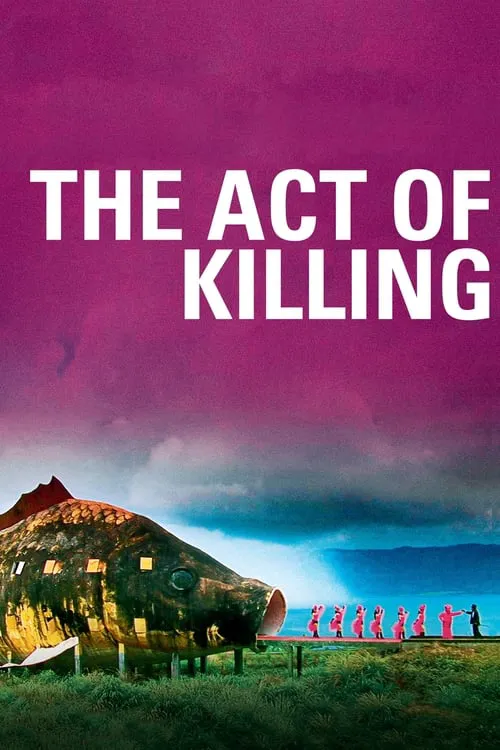The Act of Killing

Plot
"The Act of Killing" is a provocative documentary that delves into the darker aspects of human nature through the lens of former Indonesian death squad leaders who take it upon themselves to recreate their past atrocities in various film genres. The documentary, directed by Joshua Oppenheimer, offers a candid portrayal of how the past is intertwined with the present, and the ways in which violence and trauma can have lasting effects on individuals and society. The film is set in Indonesia, where in 1965-66, a violent anti-communist purge took place, resulting in the deaths of hundreds of thousands of people. The perpetrators of this tragedy were often portrayed as heroes, and their actions went unpunished. This backdrop sets the stage for the events that unfold in the documentary, where the former death squad leaders are given the opportunity to reflect on their past actions through film-making. The title "The Act of Killing" is a term that refers to the act of taking someone's life. This simple yet haunting phrase becomes the central motif of the documentary, as the former death squad leaders attempt to rationalize and justify their actions through dramatizations of their past atrocities. The result is a surreal and often disturbing portrayal of the perpetrators, who seem to revel in their ability to manipulate the truth and twist their actions into something palatable. The reenactments are the core of the documentary, and they are presented in a variety of film genres, ranging from gangster epics and westerns to musicals. The former death squad leaders take on the roles of themselves, and they enthusiastically participate in these reenactments, often using elaborate costumes and sets to create an atmosphere of spectacle. However, as the film progresses, it becomes clear that the line between reality and performance is increasingly blurred, and the reenactments take on a sense of dark irony. One of the most striking aspects of the documentary is the way in which the former death squad leaders use the reenactments as a means of trying to justify their actions. They often portray themselves as heroic figures, who were simply doing their duty to protect their country from the perceived threat of communism. However, this narrative is constantly challenged by the film's director, Joshua Oppenheimer, who uses the reenactments as a means of exposing the darker aspects of human nature. The former death squad leaders are charismatic figures, who are often depicted as being comfortable in the spotlight. They are confident and articulate, and they seem to take great pleasure in the attention they receive from the film crew. However, as the documentary progresses, it becomes clear that this facade is fragile, and that the former death squad leaders are often struggling to come to terms with their past actions. The psychology of the perpetrators is a key aspect of the documentary, and it is evident that the trauma they experienced during the anti-communist purge has had a lasting impact on their lives. Many of the interviewees are now middle-aged men, who are still grappling with the consequences of their actions. They often appear haunted by their past, and they struggle to articulate the complexities of their emotions. The documentary also shines a light on the complexities of Indonesian society, and the ways in which the government has historically attempted to suppress the truth about the anti-communist purge. The film is a powerful indictment of the corruption and impunity that has allowed the perpetrators to go unpunished for so long. Despite the often disturbing nature of the documentary, "The Act of Killing" is also a poignant and thought-provoking film that offers a powerful critique of the ways in which violence and trauma can have lasting effects on individuals and society. The film is a testament to the enduring power of art to capture the complexity of the human experience, and to the ways in which film can be used as a tool for social commentary and critique. Through its innovative use of reenactments and its unflinching portrayal of the perpetrators, "The Act of Killing" is a documentary that challenges viewers to confront the darker aspects of human nature, and to consider the implications of violence and trauma on a personal and societal level.
Reviews
Recommendations




